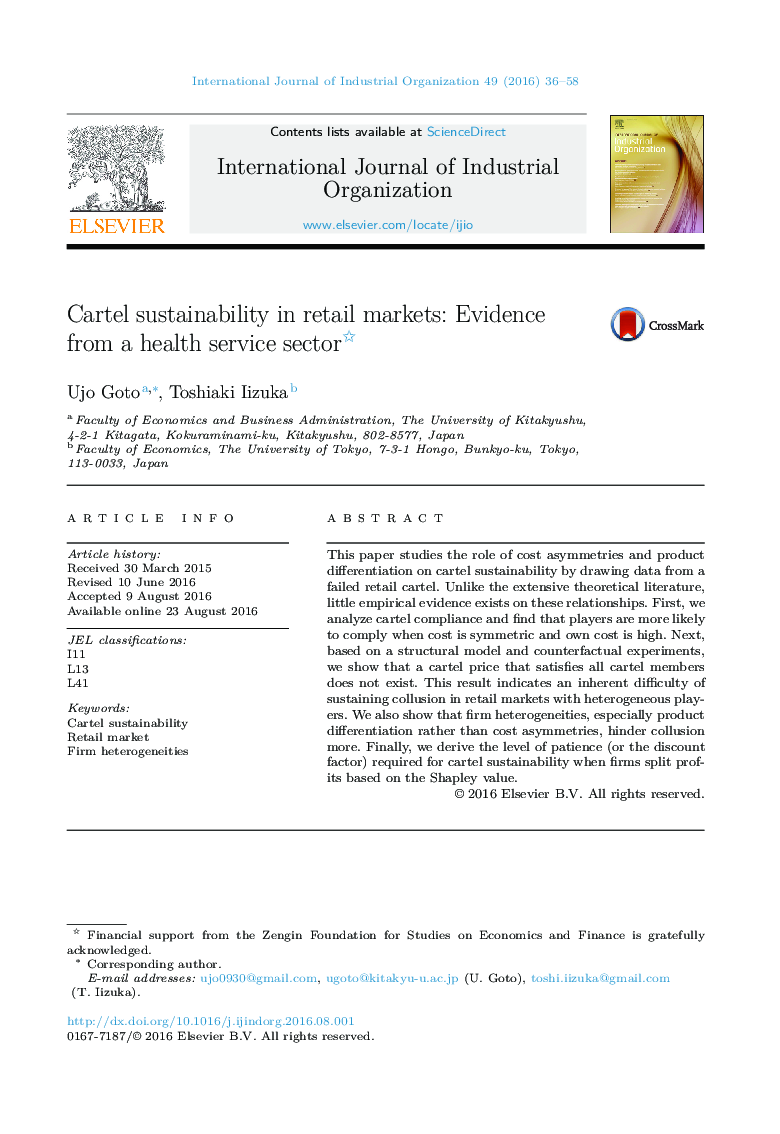| Article ID | Journal | Published Year | Pages | File Type |
|---|---|---|---|---|
| 5077830 | International Journal of Industrial Organization | 2016 | 23 Pages |
Abstract
This paper studies the role of cost asymmetries and product differentiation on cartel sustainability by drawing data from a failed retail cartel. Unlike the extensive theoretical literature, little empirical evidence exists on these relationships. First, we analyze cartel compliance and find that players are more likely to comply when cost is symmetric and own cost is high. Next, based on a structural model and counterfactual experiments, we show that a cartel price that satisfies all cartel members does not exist. This result indicates an inherent difficulty of sustaining collusion in retail markets with heterogeneous players. We also show that firm heterogeneities, especially product differentiation rather than cost asymmetries, hinder collusion more. Finally, we derive the level of patience (or the discount factor) required for cartel sustainability when firms split profits based on the Shapley value.
Keywords
Related Topics
Social Sciences and Humanities
Economics, Econometrics and Finance
Economics and Econometrics
Authors
Ujo Goto, Toshiaki Iizuka,
